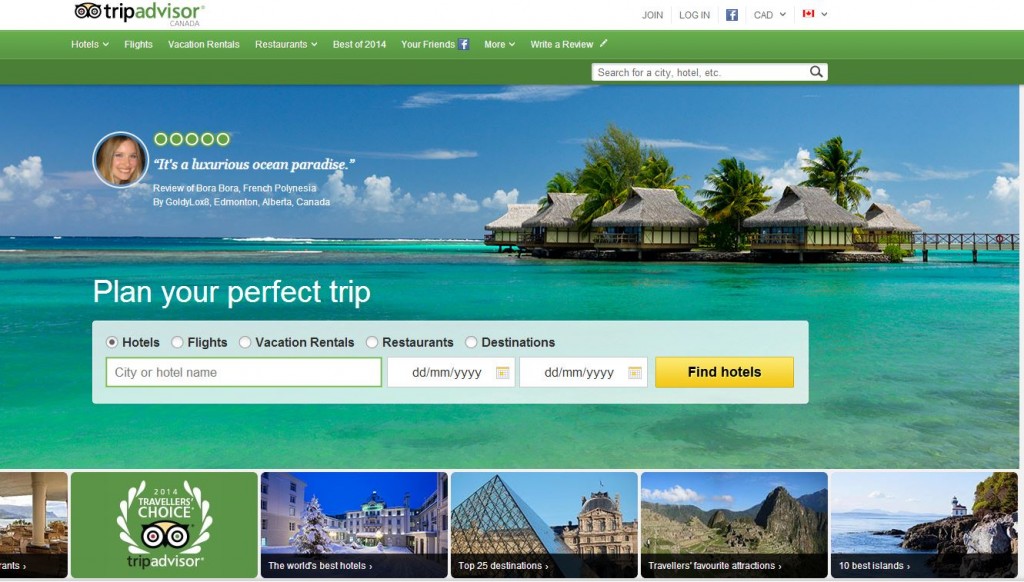- You are here:
- Home »
- Uncategorized »
- Do You Make Any Of These Simple TripAdvisor Mistakes?
Do You Make Any Of These
Simple TripAdvisor Mistakes?
There’s no denying the power of TripAdvisor.
And considering the influence that this website has over travelers’ buying decisions, I’m sure you know why maintaining a solid reputation here is important. So you carefully respond to negative reviews, do your best to be professional and always let the customer know you care.
But what if you’re making small mistakes when responding to reviews without even realizing it?
As a travel copywriter, I’ve logged hundreds of hours on TripAdvisor and other review websites as part of my research process for writing web copy. And I always read both the customer’s post and the manager’s response.
Most of the time, reps from hotels and tour companies do a great job of providing clear and thoughtful responses to both positive and negative feedback. But every now and then, I see a comment from an owner that doesn’t do their business any favors.
I’m not talking about major stuff here. It’s often the little slip-ups, caused by being too busy or maybe just not paying attention, that can cause damage to your travel brand’s online rep. So to help out, here are 5 simple TripAdvisor mistakes to watch out for.
Not double checking your tone
You see it all the time — guests misinterpret something or place blame where it isn’t due and then lash out at the hotel or tour company.
So when that happens, it’s important to clarify the issue with a diplomatic and courteous response. But make sure the tone you use matches the message you want to send.
For example, if you’re a tad peeved while writing a well-intended clarification, it might accidently be interpreted as a passive-aggressive attack. So watch for any phrases that might seem snippy or dismissive.
Pay attention to the language you use when specifically referring to any concerns the reviewer might have. When in doubt, get a second opinion.
These types of miscommunications are a bigger problem than most people think. There’s even an app available called ToneCheck that’s billed as an “emotional spell check for email.” I’m not sure how well it works, but obviously there’s a market here.
Using symbols or ALL CAPS
Want to emphasis a point? Don’t use ALL CAPS. This is almost always interpreted as yelling by the reader. You should also avoid the use of other symbols or html as well. Keep the text nice and simple, just like an e-mail to a friend.
Revealing personal information
Names, addresses, phone numbers or any other information that may be used to identify an individual must always be kept out of responses. I’m sure you know this already, but sometimes more subtle identifying information can slip out without even realizing it.
Give your response a second glance before hitting send to make sure what you wrote doesn’t contain a single iota of personal information.
Letting grammatical errors slip in
It looks sloppy when your response is riddled with typos or obvious grammatical errors. Readers will think you either don’t take your responses seriously or you’re not professional.
Now, I’m not a big stickler on traditional grammar – breaking the Oxford English rules can be an effective way to write in a more conversational style. But if your responses contain spelling mistakes or missing punctuation in every other sentence, it reflects poorly on your travel company.
The exception to this rule would be international properties. I think in this case, most travelers realize that there may be language barriers at play.
Not using a real name
TripAdvisor provides a great way to build trust with customers. But if you don’t connect a real name and title to your responses, readers are less likely to see them as authentic. Instead, what you write may come across as cold and corporate.
Not using a real name also makes people skeptical of what you say. They start to wonder who’s really behind your response – is it actually from the hotel manager or is a fancy PR team behind it?
Using stock responses
It’s tempting. If you’re fortunate enough to get loads of reviews on TripAdvisor, slapping a stock response to some of the comments sure can make your life easier – but it could hurt your online rep.
Customers want a response that’s tailored to their unique situation. Even if they left a positive review, taking the time to write an authentic response demonstrates that you care about your guests or clients. And that’s something readers will notice.
Have a tip for responding to TripAdvisor reviews?
Then tell me about it in the comments below. I’d also love to hear about any other strategies you have for using TripAdvisor effectively.
–Dustin Walker
Fire Up Your Marketing Content
Get blog articles on how to create compelling travel content that’ll boost your traffic, leads and bookings. Just enter your best e-mail address in the box below…

